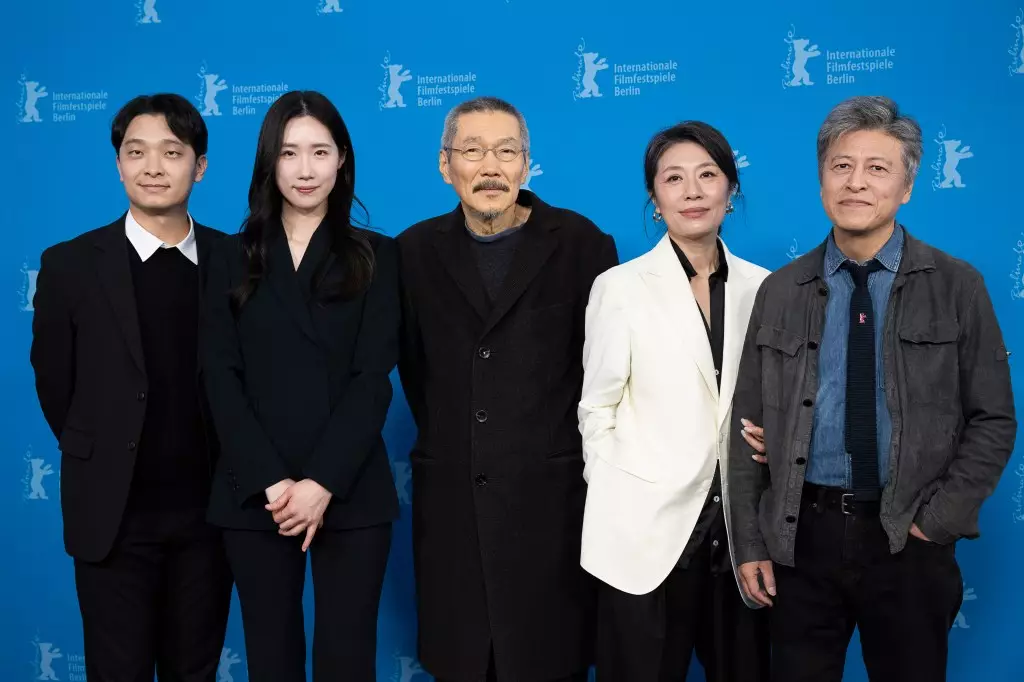As one of the stalwarts of the Korean film industry, Kwon Hae-hyo has carved a unique niche for himself over the past three decades. His commitment to his craft is evident, evidenced not only through his long-standing affiliation with innovative filmmaker Hong Sang-soo but also through his versatile roles in diverse cinematic genres. Kwon’s career trajectory highlights a profound evolution in both his personal artistry and the broader landscape of Korean cinema, reflecting a journey that has seen local narratives transcending boundaries and establishing themselves on the global stage.
Kwon’s collaboration with Hong Sang-soo, participating in twelve different films, showcases a special artistic kinship. The actor has delved deeply into the actor-director relationship, affirming that working with Hong continually enriches his craft. In an industry where predictability can stifle creativity, Kwon notes that Hong’s unorthodox filmmaking approach offers actors an exhilarating challenge. By eschewing traditional methods, such as handing out scripts well in advance, Hong fosters a space for spontaneity, allowing actors to tap into their raw emotions and experiences in real-time.
The Art of Unpredictability
In Kwon’s own words, the correlation of freedom and vulnerability is evident in Hong’s work, stating that “it’s not about some truth that we’re trying to find. It’s only about the truth and the fact that I’m facing right at that moment.” This sentiment reveals a poignant understanding of acting that goes beyond mere performance; it becomes an exploration of existence itself. The film “What Does that Nature Say to You” encapsulates this through its portrayal of ordinary life, following a young poet’s unexpectedly transformative experiences on an ordinary day.
Kwon sheds light on Hong’s distinctive style, wherein scripts are given to actors on the day of shooting. This method, while disarming, removes the often-paralyzing pressure of rehearsed lines and allows for a more authentic exploration of character dynamics. Yet, it’s noteworthy that, despite this improvisational spirit, Kwon reveals a paradox within Hong’s creative process: the lack of ad-libbing or improvised lines in his films. Rather, every piece of dialogue is meticulously crafted, requiring actors to master each word, regardless of the film’s organic feel.
What sets Kwon apart from many within the entertainment industry is not just his perseverance in a fiercely competitive field, but also his commitment to social causes. Kwon emphasizes the importance of being grounded, citing his involvement with non-governmental organizations (NGOs) as a crucial element in maintaining perspective. The actor’s belief that these experiences enrich his understanding of the world around him, thus enhancing his performances, sheds light on a rarely discussed aspect of artistic integrity.
Kwon observes the current of change in Korean cinema, attributing its meteoric rise to shifting societal dynamics. The stark transformation post-authoritarianism acted as a catalyst, allowing filmmakers to craft narratives that resonate deeply with both local and international audiences. He credits directors like Park Chan-wook and Bong Joon-ho for their contributions, asserting that the strength of Korean cinema lies in its ability to authentically depict societal realities rather than escapist fantasies.
In reflecting upon his journey and the changes he has witnessed, Kwon acknowledges that while stardom may be alluring, it is vital to retain one’s individuality in the face of industry pressures. His philosophical approach to acting—prioritizing authenticity over differentiating oneself from the vast pool of talent—demonstrates a refreshing humility and insight into the demands of the performing arts.
As Kwon Hae-hyo prepares to unveil yet another collaboration with Hong Sang-soo, audiences eagerly await the latest offering that promises to blend poignancy with spontaneity. His enduring partnership with Hong is emblematic of a broader truth in the evolving narrative of Korean cinema. The connection between personal experience, societal reflection, and artistic expression will continue to shape the industry’s trajectory as it strides confidently onto the global stage, echoing Kwon’s sentiment that cinema must remain a mirror to society and its irrefutable truths.
Kwon Hae-hyo’s journey through the intricacies of the Korean film industry represents not only the evolution of his craft but also the profound shifts within the cultural arena at large. His narrative embodies the commitment to storytelling that matters, and as he champions the truth about the human condition, it is clear that his impact will resonate for generations to come.
